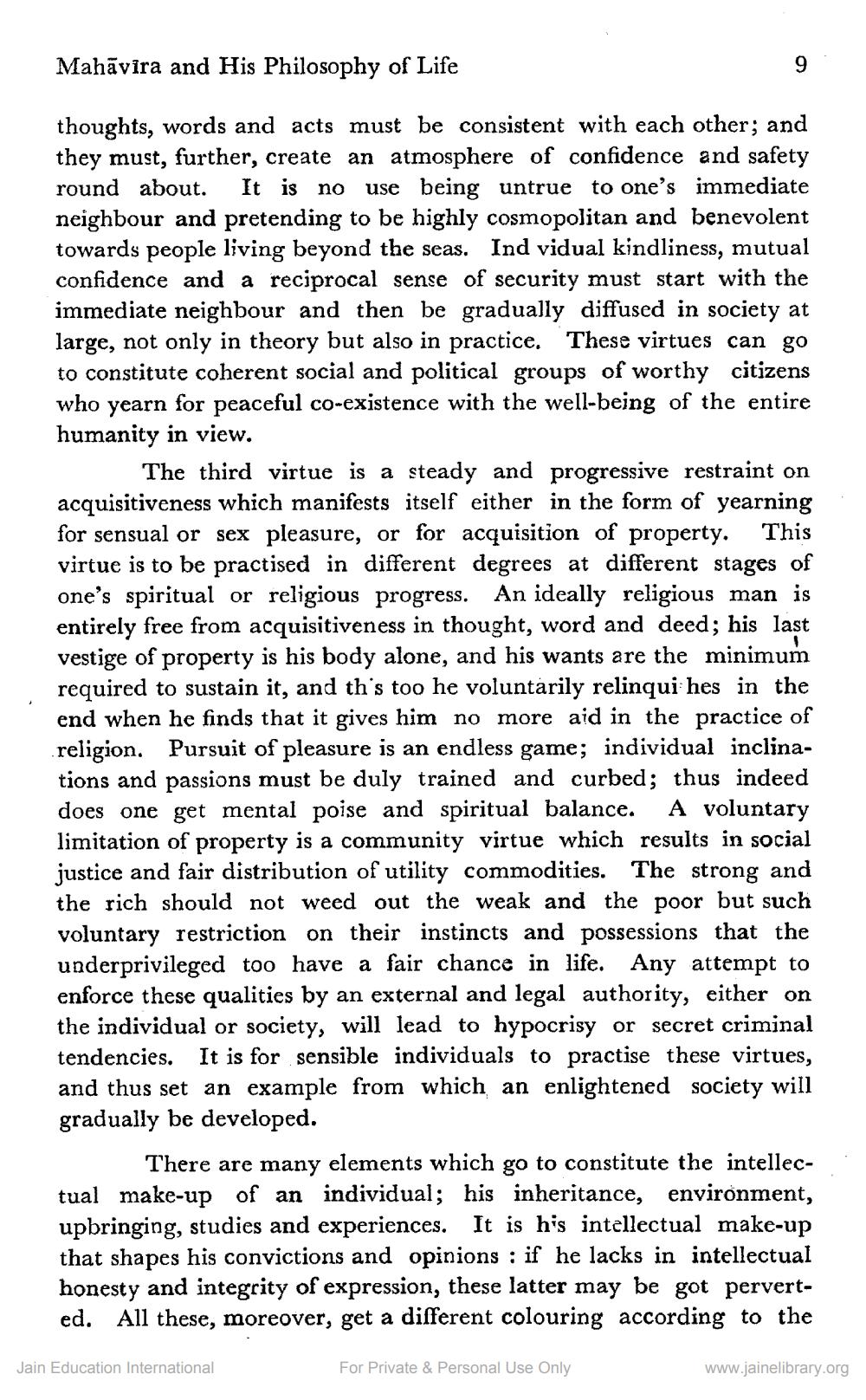________________
Mahāvīra and His Philosophy of Life
thoughts, words and acts must be consistent with each other; and they must, further, create an atmosphere of confidence and safety round about. It is no use being untrue to one's immediate neighbour and pretending to be highly cosmopolitan and benevolent towards people living beyond the seas. Ind vidual kindliness, mutual confidence and a reciprocal sense of security must start with the immediate neighbour and then be gradually diffused in society at large, not only in theory but also in practice. These virtues can go to constitute coherent social and political groups of worthy citizens who yearn for peaceful co-existence with the well-being of the entire humanity in view.
The third virtue is a steady and progressive restraint on acquisitiveness which manifests itself either in the form of yearning for sensual or sex pleasure, or for acquisition of property. This virtue is to be practised in different degrees at different stages of one's spiritual or religious progress. An ideally religious man is entirely free from acquisitiveness in thought, word and deed; his last vestige of property is his body alone, and his wants are the minimum required to sustain it, and th's too he voluntarily relinqui hes in the end when he finds that it gives him no more aid in the practice of religion. Pursuit of pleasure is an endless game; individual inclinations and passions must be duly trained and curbed; thus indeed does one get mental poise and spiritual balance. A voluntary limitation of property is a community virtue which results in social justice and fair distribution of utility commodities. The strong and the rich should not weed out the weak and the poor but such voluntary restriction on their instincts and possessions that the underprivileged too have a fair chance in life. Any attempt to enforce these qualities by an external and legal authority, either on the individual or society, will lead to hypocrisy or secret criminal tendencies. It is for sensible individuals to practise these virtues, and thus set an example from which an enlightened society will gradually be developed.
There are many elements which go to constitute the intellectual make-up of an individual; his inheritance, environment, upbringing, studies and experiences. It is his intellectual make-up that shapes his convictions and opinions : if he lacks in intellectual honesty and integrity of expression, these latter may be got perverted. All these, moreover, get a different colouring according to the
Jain Education International
For Private & Personal Use Only
www.jainelibrary.org




